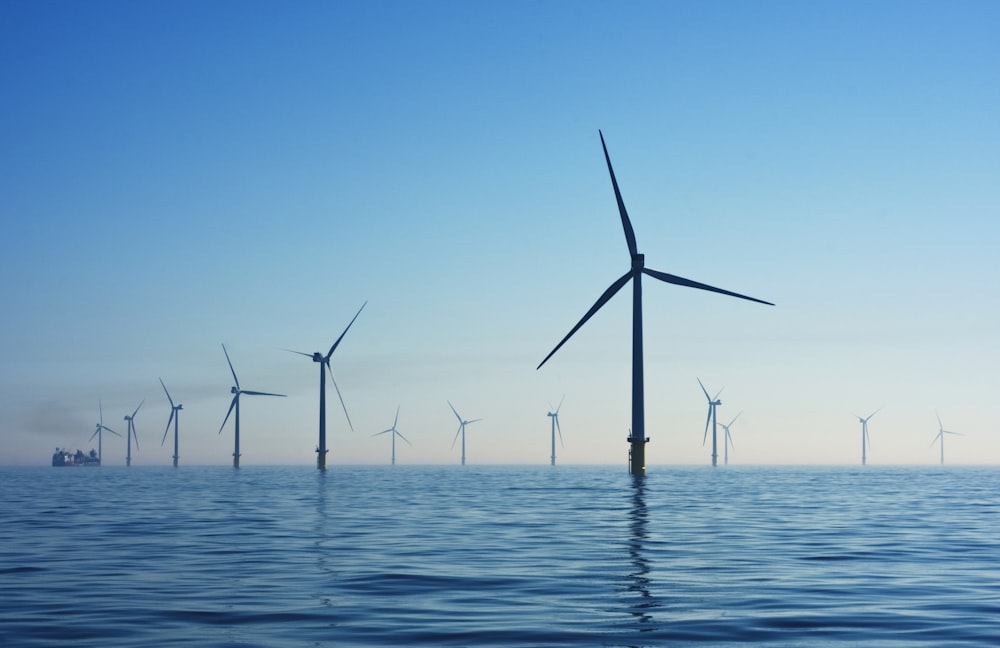EE#27 Life at the frontier
Falling behind in the energy transition benefits incumbents and penalises start-ups
I was fortunate last week to be invited to a round table between policy needs and tech people in energy, hosted by the excellent Form Ventures. Other than feeling incredibly uncool surrounded by Californian founders it got me thinking. The session made it clear the size of the gap between energy incumbents lobbying for the status quo and new companies trying to disrupt.
This week - proving value is harder when risk appetites are lower.
For much of the last 20 years, the UK was at the vanguard of energy. We were decarbonising and decentralising faster than anywhere else in the world. National Grid was proving to grids globally that balancing was possible.
Being at the vanguard suits challengers. Everything you’re doing in policy or engineering at that stage is new - the design of CfDs or bigger, broader and better offshore wind turbines. What the UK did pushed the frontier and benefitted the transition here and globally. It wasn’t just the innovation policy - public R&D spending, or the launch of the catapults - but a risk appetite from central government that is comfortable with new things and developing strategies to deploy them.*
More recently our energy transition crown has slipped. In the electricity market, California is showing us how to do things, in the electrification of home heating most European countries are ahead, and China is the dominant renewables player now.
Being behind suit incumbents. These are companies that have learned to manage with how things are now. Importantly they aren’t against progress, incumbents in energy are broadly happy with the direction of travel. But it does lead you to a question of pace and evidence.
Gradually building more renewables, and connecting infrastructure within the same system is one thing, but Labour is now picking up on the increasing resistance to its very ambitious 2030 clean power target. That level of acceleration means doing things very differently - especially in grid build-out. Big companies are like oil tankers, they are slow to pivot.
At the same time as needing to do things faster or differently government’s risk appetite is falling. Something supercharged by the public’s general feelings of (energy) insecurity. Policymakers want to be sure that things work well in practice, rather than just believing a credible business case that they might. Often this means proving that things work in other jurisdictions first, which obviously means waiting longer.
That brings in a core tenet of industrial policy. The state and the private sector need to be operating on a level playing field so that government is making informed decisions. Innovators complain about data requirements from Ofgem or that it is often mediated through incumbents - but Ofgem needs data it can recognise and trust, something innovators often don’t have. The US Department of Energy overcomes this with an army of in-house engineers and national labs,
That makes language tricky, what brings in venture capital funding to start-ups is not what drives the policy change they need to grow. When energy security is the dominant political framing talk of radical change or disruption is not going to put either the public’s or politicians' minds at ease.
The language of start-ups can position energy innovators in opposition to policymakers. They are deliberately going against the grain. For policy people that makes change seem unhelpful, a distraction from existing policy or political goals. In energy, this also arms you against the climate advocates who are trying to deploy proven tech at pace and scale. Many of them see new tech not as an accelerator but as a delaying tactic - just waiting for that silver bullet rather than getting on with it.
Energy startups also struggle to lift their heads above their specialism. Ofgem/DESNZ isn’t just regulating your heat pump tariff it’s regulating the entire energy system. There are a thousand and one specific asks it needs to balance. Incumbents recognise this, their place in it, and have massive teams dedicated to crafting a politically saleable message.
I’m caught between two minds here. The conclusion from this argument is that innovators should go with the grain, position themselves as part of a system and articulate how they are contributing to political goals. But that shuts off ambition. Liu Cixin, the author of the three-body problem, would be aghast at closing off the potential for great technological leaps by only confining yourself to the existing system.
The get-out answer here is to do a bit of both. For Labour’s 2030 goal, we broadly know 90% of the technology required. We need innovation in how to deploy it. Some of that will be catch-up growth, but some of it will be at the technological frontier. The last 10% is where the tech risk will lie. We need to stimulate that at the same time, that needs innovators.
In a classic ‘he would say that wouldn’t he’, that’s what industrial strategy is supposed to do. It sets a goal and then divides up risk appetite across different interventions and institutions. Biden has done this, he’s deployed different tools where the US is on catch-up growth (EVs, renewables), to where it’s getting ahead (Direct Air Capture).
If innovators can position themselves within that strategy, and articulate which aspect they are contributing to, that might help raise policy risk appetite and get us back to the frontier.
*the caveat from the left is that while the innovation pull-through was strong, it wasn’t benefitting UK businesses. UK policy was supporting Danish and Dutch companies, German engineers and the Asian assembly.




